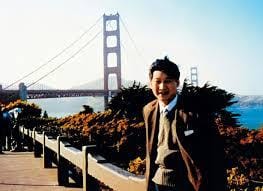
Hi Global Recap readers,
Over the weekend, rumors swirled among CCP watchers about a possible succession plan for Xi at this week’s meeting.
Some even suggest his movements could be restricted.
But like last year’s health scares around Putin, these claims are mostly speculation.
Still, it’s worth looking at the CCP’s “handshake rules” for picking a new leader—and what’s next for Xi. 👇
🌐 WORLD
Fast Scroll News
🇮🇱 Fragile Ceasefire

Israel announced on Sunday that it had resumed a fragile ceasefire in Gaza following airstrikes that killed 26 people. The strikes came hours after Gazan militants killed two Israeli soldiers near the border.
Timeline:
Friday: This back-and-forth seems to have started when a bus carrying a Gazan family reportedly crossed the “yellow line,” a buffer zone established under phase one of the ceasefire deal. Israeli forces fired warning shots, then destroyed the vehicle after it failed to turn back.
Sunday: Gazan militants fired RPGs and opened fire on Israeli troops, killing two soldiers. Israel responded with airstrikes across central Gaza. Palestinian health officials said 26 people were killed, including a woman and a child, with one strike hitting a former school housing displaced families in Nuseirat.
Aftermath
Response: Israeli PM Benjamin Netanyahu ordered a strong military response. US President Trump said the ceasefire he brokered remained in effect, suggesting Hamas leadership "may not have been involved."
Aid: Israel initially froze humanitarian supplies but agreed to restart deliveries into Gaza on Monday under US pressure.
🇷🇺 Ukraine Hits Energy

Ukraine just struck Russia’s Orenburg gas plant and Rosneft’s Novokuibyshevsk oil refinery, forcing Kazakhstan to slash output and halting crude processing in Russia’s Volga region.
Orenburg
Impact: Kazakhstan’s Karachaganak field cut production by 25-30%, dropping from 35,000 metric tons per day to as low as 25,000.
Facility: The Orenburg plant, one of the world’s largest gas processors, suspended intake of Kazakh gas after the attack.
Consortium: Karachaganak is run by Chevron, Shell, Eni, Lukoil, and KazMunayGaz, with oil exports routed through Russian pipelines to Europe.
Novokuibyshevsk
Shutdown: Separately, at Novokuibyshevsk, both CDU-11 and CDU-9 distillation units stopped, freezing a refinery that handled 5.74 million tons of crude last year.
Pattern: This was the second drone strike on the refinery in a month, with local authorities suspending airport operations and mobile internet during the assault.
🇯🇵 Japan Elects Takaichi

Sanae Takaichi
Japan’s parliament is set to elevate Sanae Takaichi, a 64-year-old nationalist and security hawk, as the country’s first female PM on Tuesday. Echoing global political trends, she is pushing her own "Japan First" agenda.
Succession: She replaces Shigeru Ishiba, who resigned after the Liberal Democratic Party (LDP) lost its coalition majority in both chambers of parliament.
Timing: Her premiership begins just three business days before President Donald Trump lands in Tokyo for high-stakes talks on trade and defense. She must juggle Trump’s demands for higher Japanese defense spending and more funding for US troops.
Policies
Immigration: Takaichi pushes tighter controls, targeting visa overstays and foreign land purchases near defense sites.
Defense: She has floated revising Japan’s non-nuclear stance, including hosting US nuclear weapons in emergencies. Takaichi is also known for her hawish stance on China and Taiwan.
📌 Context: Japan has cycled through four PMs in five years, leaving its US alliance strained and its domestic politics unstable at a moment when Tokyo faces rising regional threats from China and North Korea.
🇺🇸 Trump Signs Minerals Deal

Australian PM Albanese (left) and US President Trump (right)
Donald Trump and Anthony Albanese just signed an $8.5 billion pact on rare earth minerals at the White House, locking the US and Australia into a high-stakes supply chain partnership as China tightens its export rules.
Money: Both governments pledged $1 billion each within six months to kickstart mining and processing projects, with immediate availability promised.
Structure: The projects split into three tracks: joint US-Australia ventures, Australia-only operations, and trilateral projects with Japan.
Security: Trump reaffirmed support for the AUKUS (a trilateral security partnership of Australia, UK, and US) submarine pact, which commits Australia to spend $239 billion over three decades on nuclear-powered submarines built with the US and UK.
Reminder: Trump announced a 100% tariff on Chinese rare earth imports starting next month, escalating the trade war before he meets Xi next week. An Australia-US deal could give the US a slight edge against China, which holds an overwhelming share of global rare earth refining (~90%).
📌 Context: Rare earth minerals are critical for electronics, defense systems, and renewable energy. This Australia-US deal could give the US a slight edge against China, which holds an overwhelming share of global rare earth refining (~90%).

🇨🇳 CHINA
Who Follows Xi Jinping?
Few are circulating rumors that Xi Jinping may announce his resignation at this week’s plenum, though outlets such as The New York Times report no indication of such plans.
But one thing's clear: people are actively discussing the aftermath of his retirement.
The Xi Dilemma

Xi Jinping in San Francisco (1985).
Here's the dilemma Xi may be facing: naming a successor risks creating a rival, but refusing to name one risks chaos.
At 72, he has ruled for 13 years (since 2012), longer than any Chinese leader since Mao Zedong—the founder of the People’s Republic, who held power for 27 years.
While Xi shows no sign of stepping down, the lack of a successor is starting to look like the country’s biggest political gamble.
Xi abolished presidential term limits in 2018, making indefinite rule legally possible.
This move sparked major controversy in China and abroad, as it broke with the CCP's post-Mao tradition of alternating leadership between rival factions.
Since Deng Xiaoping the CCP built "informal succession norms" and a routinized leadership turnover that reduced personalist rule. Scholars describe this as “institutionalized” succession but it's relied heavily on informal bargains and weak institutions.
Xi, obviously exploited this "weak handshake" rule.
Succession Rumors
That said, long before recent rumors, many had speculated that Xi’s daughter was being groomed to assume power after his death.

Many circulated the above image, claiming it showed Xi’s daughter. Getty Images, which initially identified it as her, later corrected the caption—saying that it depicts Catherine Chen, who attended Fashion 4 Development’s 8th Annual Official First Ladies Luncheon at the Pierre Hotel.
The following photo seems more plausible. In fact, my Chinese sources also seem to believe that below is the real photo of his daughter. Just by the looks of it, kind of convincing... 👇

Behind Closed Doors

This week’s Central Committee meeting in Beijing is supposed to be about five-year economic planning, but everyone seems to be focused on the politics.
The meeting is being held at the Jingxi Hotel, a venue reserved for top-level Communist Party deliberations.
Hundreds of senior officials are attending, but discussion of succession is censored and politically taboo.
Analysts expect Xi to delay any moves until after his likely fourth term begins in 2027.
Loyalty Above All

Xi Jinping watching former President Hu Jintao being dragged out of the closing session of the 20th National Congress of the Chinese Communist Party (Oct. 22, 2022).
Xi’s obsession with loyalty is shaping the field of potential heirs, and it is narrowing fast.
He has repeatedly warned against the Soviet Union’s mistake of elevating Mikhail Gorbachev, whom he blames for its collapse.
On October 17, the Chinese military expelled nine senior officers for corruption, a purge widely read as a warning against disloyalty. This also came after rumors circulating about Xi allegedly suffering a stroke.
At the same time, younger officials born in the 1970s are being promoted in provinces, but Xi distrusts those without direct ties to him.
History’s Shadow

Mao Zedong (left) and Xi Jinping (right)
Xi’s caution is rooted in personal and political history, and it makes him even less likely to gamble on a clear successor.
His father, Xi Zhongxun, was famously purged by Mao. However, it's peculiar that Xi has a known obsession with Mao, regardless.
In 1989, as a local official, Xi watched the Tiananmen protests and saw how elite divisions nearly unraveled the Party.
Experts like Christopher Johnson argue Xi studies dynastic cycles obsessively, convinced that succession is the weak point of every regime.
The Clock Ticks

Former paramount leader of China Deng Xiaoping
The longer Xi waits, the harder it becomes to find someone both young enough to rule for decades and seasoned enough to command authority.
Xi was 54 when he joined the Standing Committee in 2007.
By contrast, most current candidates are already too old to serve long terms.
Analysts predict that the eventual successor may now be a provincial official in their 40s or early 50s, still invisible to the public eye.

